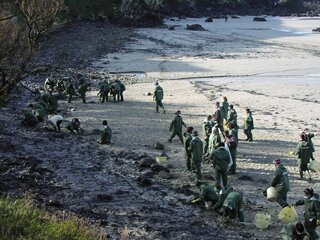Factors that determine the cost of oil spills (2003)
22 May 2014

Dr Ian White and Fionn Molloy
Paper presented at the International Oil Spill Conference 2003, Vancouver, Canada, 6-11 April 2003
The NAKHODKA and ERIKA oil spills in Japan and France, respectively, have once again focused attention on the potentially high cost of such events and the adequacy of the current international compensation arrangements. This prompted a study by the International Group of P&I Clubs of the costs of 360 oil spills occurring outside of the USA between 1990 and 1999. The results of the study, as well as examples drawn from specific incidents, provide a good basis for examining the technical factors that, in combination, give rise to great variation between the costs of individual incidents. One of the most important factors is the type of oil, coupled with the physical, biological and economic characteristics of the spill location. However, other factors such as the amount spilled and rate of spillage; weather and sea conditions; time of the year and the effectiveness of clean-up can also be crucial in determining the overall cost of an incident. One conclusion is that it is inappropriate to make cost comparisons between fundamentally different oil spill events by reference to a single parameter, such as the total amount of oil spilled.
Categories: Compensation, Papers
